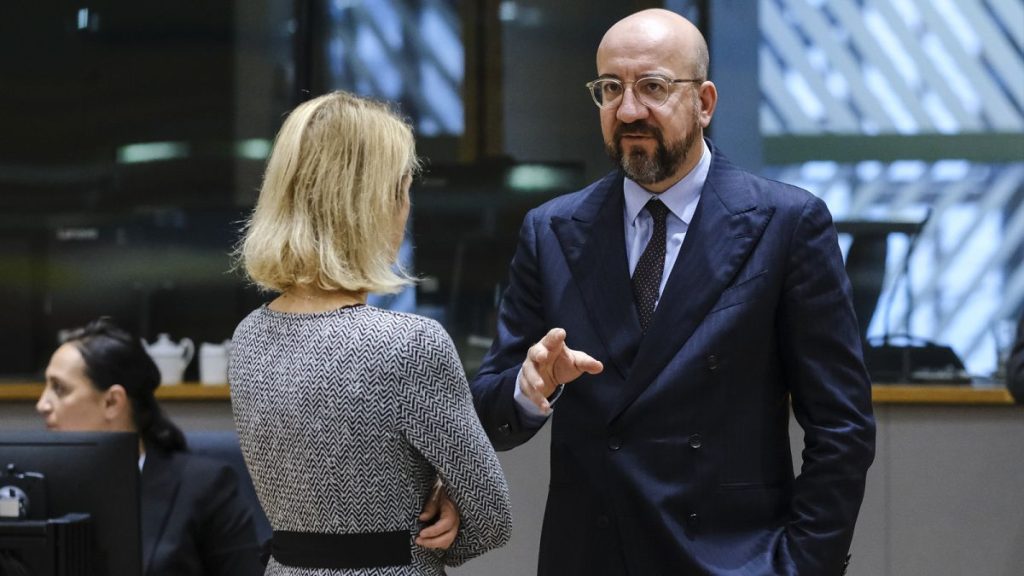The European Union is considering the controversial idea of issuing Eurobonds to finance efforts to strengthen the bloc’s defense capabilities. This proposal, which will be discussed as the 27 EU leaders meet in Brussels, is aimed at testing member states’ willingness to jointly issue debt for defense purposes. While some leaders, such as French President Emmanuel Macron and Estonian Prime Minister Kaja Kallas, have supported the idea in the past, there is skepticism among more fiscally conservative countries. The proposal is seen as necessary to address the ongoing conflict on the EU’s eastern flank and to ensure the bloc’s preparedness for any potential conflicts, particularly with Russia’s war economy in mind.
European Council President Charles Michel has called for “radical and concrete steps” to put the EU’s economy on a war footing, including considering defense bonds to streamline military spending. The EU has been draining its defense stockpiles to support Ukraine in the face of Russia’s invasion, leading to calls for more innovative ways of funding defense efforts. Recent breakthroughs, including a weapons fund for Ukraine and proposals to use windfall profits from Russian assets to arm Ukraine, are part of the urgent response to the crisis. Former Finnish Prime Minister Sauli Niinistö has been tasked with preparing a report on the EU’s civilian defense preparedness, reflecting the bloc’s focus on addressing the ongoing war in Ukraine and ensuring its own readiness for potential conflicts.
The proposal for Eurobonds to finance defense efforts faces resistance from some member states, particularly the ‘frugal five’ countries – Austria, Denmark, Finland, the Netherlands, and Sweden. These countries have opposed issuing EU public debt in times of economic crisis, fearing that it would disproportionately affect richer nations. The idea of joint debt-raising is further complicated by the EU’s experience with issuing common debt during the COVID-19 pandemic, which has led to higher borrowing costs and concerns about financial sustainability. Despite President Michel’s proposal, it is unlikely to gain widespread support among member states, highlighting the challenges of seeking financial solidarity in the EU.
An alternative approach to increasing defense spending has been proposed by 14 member states, who advocate for amending the European Investment Bank’s mandate to allow it to fund military investments. This initiative, which seeks to expand the EIB’s role in financing defense-related activities, has the support of countries like France and Germany. Additionally, the Czech Republic’s plan to supply artillery shells to Ukraine’s armed forces is gaining traction, with several EU countries expressing interest in participating. The ongoing discussions on ways to support Ukraine and bolster defense capabilities reflect the EU’s commitment to addressing the crisis in Ukraine and responding to security challenges in the region.
In addition to the discussions on defense financing and support for Ukraine, the EU leaders will also address other pressing issues during the summit. This includes deciding whether to open accession talks with Bosnia and Herzegovina, Ukraine, and Moldova. The potential decision to open talks with Bosnia and Herzegovina is not expected to face significant opposition, despite past challenges. Leaders will also focus on the situation in Gaza, with efforts to call for a humanitarian pause leading to a sustainable ceasefire in the besieged Gaza Strip. The summit will provide an opportunity for EU leaders to address a range of issues affecting the bloc’s security and international relations, highlighting the importance of EU unity and cooperation in navigating complex geopolitical challenges.


